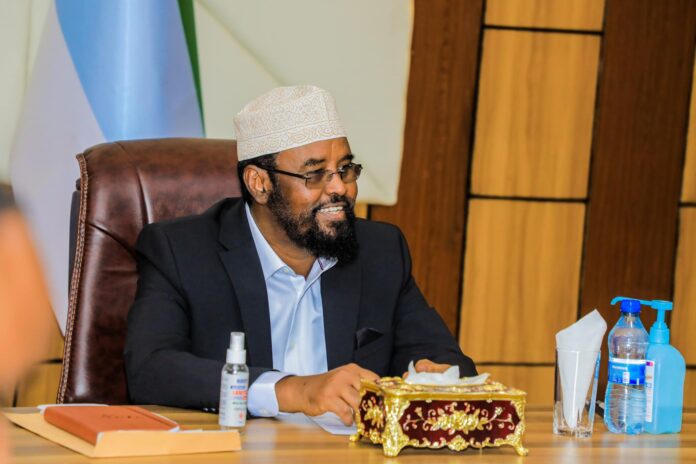KISMAYO, Somalia — The incumbent President Ahmed Madobe, has publicly vowed to accept the results of the forthcoming presidential election, set for November 25 in the regional capital, Kismayo.
Madobe, who has been at the helm of Jubaland since its inception in 2013, made these remarks in an interview with Shabelle TV while receiving his candidacy certificate from the local election commission.
“If I win or lose, I will accept the results of the election,” Madobe declared, in what many interpret as an attempt to foster a peaceful electoral process in a region often fraught with political discord. This statement comes at a crucial time, as the federal government of Somalia, led by President Hassan Sheikh Mohamud, has been pushing for a more centralized electoral system, which contrasts with Jubaland’s current practice of indirect elections.
Madobe’s decision to seek a fourth term is driven by his uncompleted agenda, particularly his ongoing campaign against Al-Shabaab, an Al-Qaeda-linked militant group. Since taking office, Madobe has positioned himself as a staunch opponent of the insurgents, with significant military successes, often in collaboration with neighboring Kenya, whose troops have been instrumental in regional security operations.
The announcement by Madobe not only underscores his commitment to democratic norms but also serves as a strategic move to potentially ease tensions between Jubaland and the Somali federal government, which has historically been at odds with the semi-autonomous state over governance and resource control. His pledge could be an olive branch to his political adversaries within Jubaland and to Mogadishu, promoting a semblance of unity and cooperation ahead of the polls.
Despite his assurance, the path to the election remains fraught with complexities. The federal government’s insistence on a one-person, one-vote system has been met with resistance from Jubaland, which prefers to maintain its control over the electoral process through clan-based selections, a method that has been criticized for lacking transparency but is argued to reflect the region’s clan dynamics more accurately.
Observers are watching closely to see if Madobe’s acceptance of the election results will indeed lead to a peaceful transition, should he lose, or if it will merely be the beginning of another chapter in the long-standing disputes between regional and federal powers in Somalia. His leadership has been credited with bringing relative stability to Jubaland, making this election a pivotal moment for the future direction of the state’s governance and its relationship with Mogadishu.





